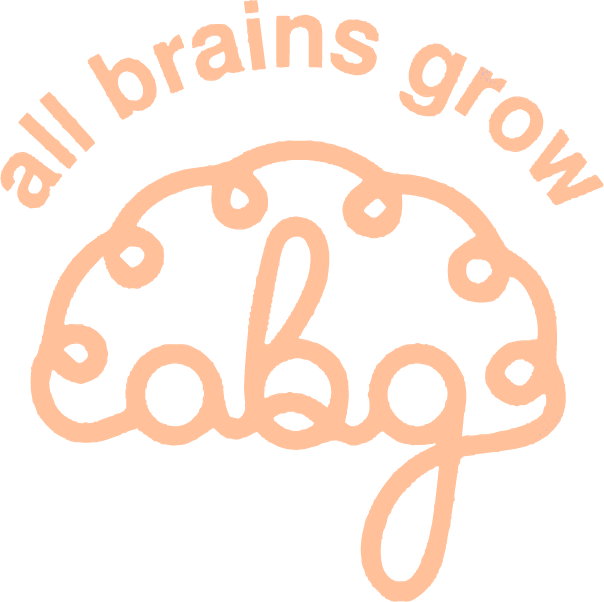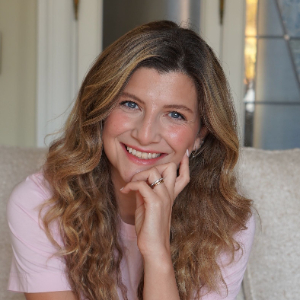Do Not Judge a Book By Its Cover: Living With Dyspraxia By Diane Naimeh
Aug 07, 2025
Crawling, tying my shoelaces, counting money, and learning to drive… These might seem like ordinary tasks. But for me, they were mountains to climb.
My name is Diane Naimeh. I’m 26 years old, I have dyspraxia, and I’m a graduate of the University of Sussex with a Bachelor’s and Master’s in International Development.
Growing Up With Dyspraxia
I was diagnosed with dyspraxia when I was six years old, but I didn’t really understand what it meant until I turned 12. Dyspraxia is a neurological disorder that affects coordination and motor skills. It meant that everything from crawling as a baby to tying my shoelaces and counting money was a challenge.
Tying my shoelaces was hard because I struggled to hold the strings between my fingers and tie them up. Counting money, especially the big numbers, took a long time to learn. I also have dyscalculia, which makes it hard to tell the difference between large and small numbers or calculate anything quickly. Reading a clock, driving, holding a pencil… all of it was harder for me.

Making friends was also difficult, and it still is. I never know what to say. I’m scared of being judged and I always worry about what people think of me. I always wonder: “What questions will they ask me?”, “Will they think I'm different?”
Because when people don’t understand me, that’s when I start feeling different. But when they do understand me, I feel like I belong.
Practice, Not Perfection
As I got older, I realized that having a learning difficulty shouldn’t stop me from achieving my dreams. Even if dyspraxia never fully goes away, I learned that practice can make a huge difference. I was born this way, and I have to learn to live with it.
While I grew up with many therapists and occupational therapists, it was really practice that was the only thing that helped me realise that I should never give up. And I started realizing that my learning challenge is what makes me a unique and strong person.
With a lot of time and effort, and the constant support of my parents, I became more independent. I can now drive, tie my shoelaces, tell time, and count money faster than before.
My parents sat with me while I was learning to drive, and they never gave up on me. And I’m proud to say that I’ve learned to drive in the most chaotic and difficult roads to drive in: Lebanon. Learning how to drive was an important step to feeling confident in becoming an independent person.
School and the Power of Belief
High school was not easy. I struggled a lot, especially in Math and Physical Education. My dyscalculia made analyzing diagrams and doing calculations extremely hard. During my International Baccalaureate, I was anxious all the time, afraid I wouldn’t pass. But I kept pushing. I studied late into the night, worked with tutors, and slowly things improved.
I remember my Business teacher once used me as an example of hard work. That stayed with me.
I would like to thank my teachers today for believing in me.
PE was especially painful because I was bullied for how I ran. People called me a loser. They thought I wasn’t smart enough, but honestly i don’t think they had anything else to do in their life but make my life miserable. But in the end, I proved them wrong: I got accepted into one of the top universities in the UK for International Development.

At university, I worked even harder. During my Master's degree, I stayed up until 5:00 a.m. writing essays and researching. My dissertation topics were unique, such as:
- “Faith in Development: Women’s Rights and Lebanese Faith-Based Organisations”
- “Lebanese-Iranian Relationships and the Introduction to the Arabic-Persian Language”
I graduated with a high merit, scoring 70 on my dissertation. I did it. I achieved my target.
They used to tell me I was a loser who didn’t know how to run... Today I would like them to feel regret, because my success proved them wrong.
The Working World
During university, I joined the school newspaper and did a lot of research and volunteer work. I even started two Instagram pages: one to share my academic work and another about dyspraxia.
The page about dyspraxia is especially important to me. It’s where I show the world what I’ve lived through, and I hope it inspires others like me to keep going.
Today, I work as an Event Sales Executive at St. Regis Marsa Arabia Island, The Pearl, in Qatar. When I first joined, no one knew what dyspraxia was. I had to explain it: that it affects coordination and motor skills and that my brain works a bit differently. Once they understood, they supported me.
They said it doesn’t matter that I work slower, what matters is that I do good work.
The people who have truly believed in me from the beginning are my family and friends. I wouldn’t be where I am without them. They are the ones who didn’t judge me, who believed I was smart despite my learning difficulty and who knew I was capable of doing what I set out to do. And thanks to them, I can keep on believing in myself and prove everyone else wrong.
My Message to You
This is my life story. I’ve lived with dyspraxia, faced challenges, been misunderstood, and kept going. And I’ve proved that you really can’t judge a book by its cover.
To anyone out there with a learning difficulty: don’t give up. People may judge you without understanding what you’re going through, but that doesn’t define you.
Everyone is born unique, and people will judge you without even thinking as they do not understand what you live with. And that’s ok, just believe in yourself and believe you are capable, despite it all.
You may have a learning difficulty which makes it harder to become like others, but don’t regret anything. You can’t change the past. You can only move forward and try harder and harder to achieve your dreams.
My dream is to work for the United Nations, to understand different perspectives in life, and to make a difference in the world.
And I believe I’ll get there. What’s your dream?

